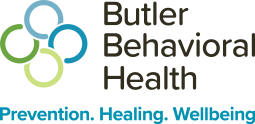News
RECOVERY IS WORK. WORK IS RECOVERY
'Recovery is work; work is recovery'
Jona Ison, jison@Gannett.com 9:07 a.m. EDT May 3, 2015
Excerpt:
WorkPlace Associates
For two decades, Butler Behavioral Health Services has been providing vocational rehabilitation — or "quietly creating taxpayers," as they like to call it — through its WorkPlace Associates program.
"We look at ourselves as Butler County's employment program," said program manager Chris Steed.
Services are primarily funded by the Butler County Board of Mental Health and Addiction Services. Additional funding for around 35 people is provided by Opportunities for Ohioans with Disabilities, a state agency that makes decisions on Social Security disability and targets getting people with disabilities employment.
Individuals helped via the WorkPlace Associates program are not charged. It works with people to determine their weaknesses and strengths to help them determine goals and what path to take their lives.
"Everybody has something. No matter where they're at (in their recovery), there's something to build off of … Just because someone has an addiction or a mental health issue doesn't mean they're stupid," Steed said.
Aside from coaching people on social skills, salesmanship and interviewing, they also help clients identify steps, such as earning a GED, which will improve their employability.
"We're not in charge. We offer support," Steed said.
Connections with businesses vary based on what the individual wants and often WorkPlace operates in the background without them knowing.
"There's still a stigma to mental health and addiction issues, so some people don't want us to work with their employer," Steed said.
Keys to success for the program, in Steed's view, include starting services within 10 days of being contacted and connecting people with other agencies to get help, like with housing.
"Part of the success is getting the right people around the table at the right time," he said.
So far this year, WorkPlace Associates:
- Has provided services to 225 people
- 95 people have obtained employment
jison@Gannett.com
Twitter: @JonaIson
Rate of current illicit drug use
|
College graduates |
7% |
|
Some college |
11% |
|
High school graduate |
10% |
|
Drop out |
12% |
Source: National Survey on Drug Use and Health 2013
Need help?
Call 1-877-275-6364 to get connected to recovery and vocational rehabilitation resources in your community.
Necessary recovery supports
Research shows substance abuse recovery is most successful when these areas of life also are addressed:
- Health: overcoming or managing one's disease(s) or symptoms — for example, abstaining from use of alcohol, illicit drugs, and non-prescribed medications if one has an addiction problem — and, for everyone in recovery, making informed, healthy choices that support physical and emotional well-being
- Home: having a stable and safe place to live
- Purpose: conducting meaningful daily activities, such as a job, school volunteerism, family caretaking, or creative endeavors, and the independence, income, and resources to participate in society
- Community: having relationships and social networks that provide support, friendship, love, and hope
Source: Substance Abuse and Mental Health Services
